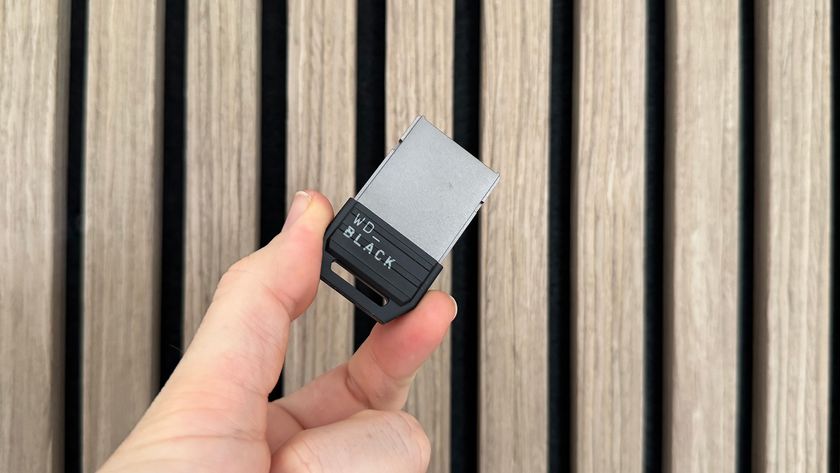12DOVE Verdict
The Samsung Q70T is an entry-level 4K 120Hz screen that is a stone cold 4K bargain if you can find it for sale still.
Pros
- +
Superb value for money
- +
4k 120Hz HDMI support
- +
Low input lag game modes
Cons
- -
No local dimming
- -
Only one HDMI 2.1 input
Why you can trust 12DOVE
The Q70T may be an entry-level QLED screen, but it doesn’t sacrifice much to save you big bucks.
In addition to high frame rate support, it offers Samsung’s advanced Tizen smart platform, has decent HDR, and boasts two low input lag settings which mean it is still one of the best gaming TVs and still in with a good chance of being the best TV for PS5 and Xbox Series X for you too.
The main difference between the Q70T and its stablemate the Samsung Q80T is that it lacks local dimming. As a result, it can’t handle HDR quite as well, but the differences may not be as profound as you expect. There are no corners cut on the processor. The set uses the same 4k AI-enhanced Quantum image processor found higher up the range.
Features & Design
The Q70T's design is sleek and minimalist, and the set’s bezel is fabulously thin, which only serves to enhance the look.
There are four HDMI inputs, one of which is eARC compatible. All four support 4K at 60Hz and one is of the 2.1 variety meaning the Q70T is still a 120Hz 4K TVs option in 2022. There’s also a pair of USB ports, an optical digital audio output and Ethernet. Wireless connectivity covers Bluetooth and Wi-Fi.
As is often the case with Samsung’s QLEDs, there are two remote controls in the box, one a standard wand, the other a slimmer stick.

Performance
Overall image quality is impressive, and an AI picture mode automatically optimises the picture, so you don’t need to manually manage the usual presets which is a great touch. The Q70T also does a fine job upscaling, adding subjective detail to HD sources, and it cross-references content with an on-chip image database, then intelligently interpolates textures and detail. There’s no Dolby Vision support, sadly, (Samsung is funny like that), but its HDR presentation is generally good. We measured HDR peak brightness at 600 nits, which is enough to add a level of depth and believability to images.
While that lack of local dimming means the set can’t offer really precise HDR, you won’t feel short changed while gaming. Overall black level performance is similarly convincing. The panel uses a novel Dual LED edgelight comprised of two colour temperatures, to lift subjective contrast.
Input lag is very good. As we expect from Samsung, there’s a choice of Game Motion Plus, which retains image processing to reduce blur and judder, or a pure Game mode. They deliver 19.8ms and 9.1ms (1080/60) respectively. That’s certainly low enough for competitive fragging.
Motion handling is impressive. We suggest using the Auto Motion Plus setting to manually manual configure blur and judder.
Audio is somewhat less impressive, however. The Q70T doesn’t have the OTS (Object Tracking Sound) system seen on its Q80T big brother, although it does offer Adaptive Sound which can dynamically compensate for ambient noise in your living room.
Other niceties include Mobile Multi View with Casting, so you can watch two screens, the TV image, and your smartphone, simultaneously. Your mobile appears as a POP (Picture Outside Picture); there’s also Ambient mode, which effectively turns the Q70T into a turbo-charged JPEG gallery, plus compatibility with any SmartThings devices on the network. The Q70T is compatible with Amazon Alexa and Google Assistant, as well as Samsung’s own Bixby.

Overall - should you buy it?
The Samsung Q70T is particularly appealing for gamers eager to partner a new-gen console with a large 4K 120fps compatible display that doesn’t break the bank.
The lack of local dimming doesn’t result in a huge shortfall in contrast, and image clarity, both 4K, and HD, is outstanding. That low input lag figure clinches the deal, and ensures that this is still a quality proposition, and one of the best QLED TVs of recent years.
If you're looking for some more premium screens, then check out our guides to the best PS5 monitor, best Xbox Series X monitor, and best OLED TVs.
Steve May is a home entertainment technology specialist. Creator of Home Cinema Choice magazine, Steve writes about gadgets and gizmos for GamesRadar, T3, Louder Sound, TechRadar, Home Cinema Choice and Yahoo. He’s also the editor of The Luxe Review and Pro AV site Inside CI. Steve once wrote a games column for legendary British comic 2000AD (and has a badge to prove it), and maintains that when it comes to top shooters, Doom is the GOAT.

Assassin's Creed Shadows was originally envisioned without Yasuke, but Ubisoft wanted the full feudal fantasy: "We were sort of making a stealth tank, and it didn't quite work"

Doom: The Dark Ages doesn't have multiplayer because "it would definitely come at the expense of" the campaign

Venom star Tom Hardy says they "got as close as [he] could possibly imagine" to a Spider-Man crossover, which he would have "loved" to have done












